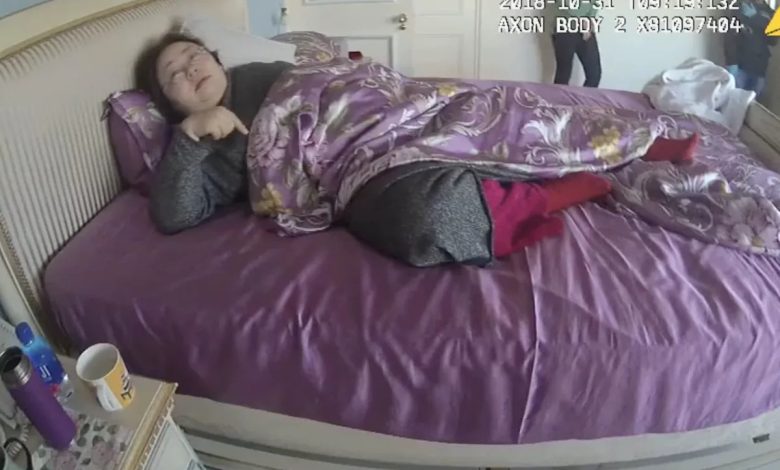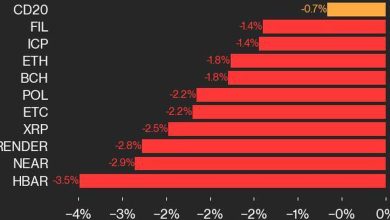‘Crypto queen’ caught in bed of York Airbnb after six-year manhunt

The six-year manhunt for the Chinese woman behind Britain’s biggest ever money-laundering case ended with its architect cowering in the bed of an Airbnb in York.
Zhimin Qian, 47, defrauded £5.5bn of Bitcoin from 128,000 victims in her native China and fled to the UK in July 2017 on a Caribbean passport under a false name.
Qian, with the assistance of Jian Wen, a 42-year-old former takeaway worker from Leeds whom she had recruited over social media, moved into a £17,000-per-month rented home in Hampstead, north London.
The pair laundered their digital fortune in a 48-week-long shopping spree between 24 locations in Europe, buying watches, diamonds, and designer clothes.
Qian, who had convictions for fraud in China, presented herself as an international jewellery tycoon with Wen acting as her majordomo.
In a single excursion, Qian and Wen spent £119,200 purchasing two watches at a Van Cleef & Arpels in Zurich, Switzerland.
Qian, in a 2018 manuscript titled Six-Year Plan, wrote of winning the confidence of a “duke from the UK” and of becoming the queen of Liberland, an unrecognised microstate on the Croatian-Serbian border, by 2022.
She had not factored in sitting in the dock of Southwark Crown Court as a defendant in Britain’s biggest money-laundering case some six years later.

Zhimin Qian is caught by police for the first time at a house in Hampstead in 2018
On Tuesday, Qian was jailed for 11 years and eight months after admitting money-laundering offences and transferring and possessing criminal property, namely cryptocurrency.
Her accomplice Seng Hok Ling, a 47-year-old Malaysian, was jailed for four years and 11 months in prison after pleading guilty to transferring criminal property over his role in the multibillion-pound fraud.
Suspicions by authorities arose when Qian and Wen attempted to buy a £24m mansion near Hampstead High Street and a £12.5m property in Totteridge, north London, in 2018.

Suspicions were raised when Qian attempted to buy this house in Totteridge, north London, for £12.5m
On October 31 of that year, police officers raided Qian and Wen’s rented property for an initial search. Qian was found lying underneath the covers of her purple bedspread.
She lied to officers that her name was Yadi Zhang and that she was suffering from a long-term brain and leg injury.
In the safe of her bedroom, officers discovered a notepad containing the login details for her laptops and the passkeys for the online wallets containing her digital fortune.
Investigating officers could not have suspected that the passkeys would lead them to the largest single seizure of cryptocurrency in the world.

The notebooks found by the police, which included the passkeys for Zhimin’s crypto wallet
In total, officers seized more than 61,000 Bitcoins, now worth approximately £5bn, alongside other non-crypto assets valued at more than £200 million.
It is understood that Scotland Yard is seeking to recoup the expenses of their seven-year-long investigation from the seized fortune.
On a red Dell laptop, officers found £823m worth of Bitcoin stored in a crypto wallet. Another black Lenovo laptop had more than £350m of Bitcoin.
The discoveries did not end there. Officers also found £130,000 in bundles of cash, along with smaller bundles of euros, United States dollars and Swiss francs.

Qian provided this map for her accomplice explaining how to find a safety box, near Harrods in central London, containing her digital assets

Police officers search Qian’s safety box
Using the details from a crude “treasure map” that Qian had drawn for Wen for a safety deposit box around the corner from London’s Harrods, officers found a mobile phone and two laptops containing millions of pounds worth of cryptocurrency.
Although the seizures were suspicious, Qian and Wen were not arrested.
Qian took the investigation as her cue to flee and spent the next six years on the run, employing an entourage whom she financially coerced with punitive contracts to help cover her tracks.
Wen was arrested in May 2021 at the same Hampstead address and later sentenced to six years’ imprisonment for money-laundering offences.
It was not until April 22 2024 that officers managed to trace Qian to an Airbnb in York.
Police stormed the modest yellow brick house in Ryecroft Avenue. Like six years previously, the officer found Qian cowering in her bed, clutching her bedsheets. She was subsequently charged with money-laundering offences.

Qian was arrested for a second time in York in April of last year. She was discovered by police beneath by her bedclothes again
Richard Thomas KC, mitigating on behalf of Qian, said his client has “no previous convictions” and has maintained an “exemplary record” while in custody.
Roger Sahota, Qian’s solicitor, said she “hopes some good endures from the wealth her work created”.
“Bitcoin pioneer Ms Qian, once the world’s largest female BTC holder, accepts her conviction and the mistakes that led to it,” Mr Sahota said.
“She never set out to commit fraud but recognises her investment schemes were fraudulent and misled those who trusted her. She is deeply sorry for the distress suffered by investors and hopes some good endures from the wealth her work created.”

Qian fled China for the UK in 2017 having defrauded 128,000 victims

Jian Wen (left) and Seng Hok Ling were both found guilty having served as Qian’s accomplices
Following her sentencing, the Metropolitan Police’s head of economic and cybercrime command, Will Lyne, said the investigation was one of the “largest and most complex” the force had ever undertaken.
“This outcome is the result of seven years of dedicated investigation by specialist teams from across the Met,” he said.
“There is no doubt this is one of the largest and most complex economic crime investigations we have ever undertaken, and today’s sentence would not have been possible without working closely with our partners from the Crown Prosecution Service, National Crime Agency and Chinese law enforcement.
“Organised crime groups are using cryptocurrency to move, hide and invest the profits of serious crime – but every crypto transaction leaves a trace and the Met works meticulously with partners to follow that digital trail, identify assets and bring offenders to justice.
“Our message is clear – criminal assets are not safe in the UK. The Met remains committed to protecting the public and this outcome shows the lengths we will go to secure justice for victims.”
London Mayor Sadiq Khan said: “Cryptocurrency fraud is worth billions, fuels international money laundering and props up organised criminal gangs, so I welcome this significant intervention by the Met.”




